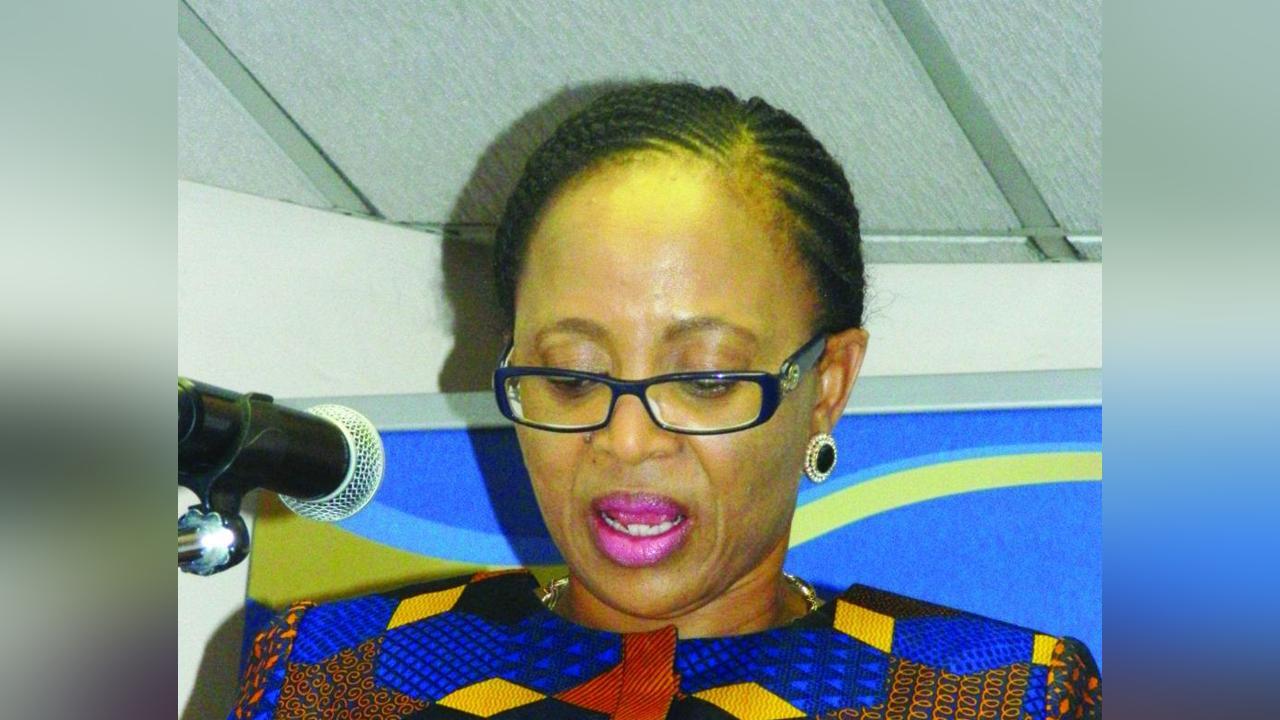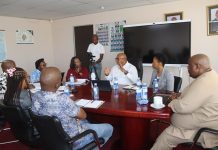Africa-Press – Lesotho. Lack of execution, coupled with poor oversight role by relevant stakeholders, are the main reasons behind failed development projects in the country, local development experts have warned.
“We come up with good plans but execution remains the main challenge thus far.
The programme has to be reviewed and see if it is still relevant, if yes, then cascade it down to the ministries in order for them to know as to what they should be doing under the program.
The same thing should happen with other departments at ground level. “This is because we always have big plans up there but there are no linkages between the authorities and the department level in terms of planning.
We also need a clear monitoring and evaluation department which will be earmarked at monitoring the implementation of these initiatives because if nothing is monitored and or evaluated, it cannot benefit the country in any way.
“According to me, the department of development planning can actually do the monitoring and evaluation process,” a local chartered accountant and consultant, Robert Likhang, said in an interview with Public Eye on Wednesday this week.
In addition, he says, the county has failed over the years to honor its constitution which, among others recommends the implementation of the national planning board, a notion that has been overlooked by relevant authorities including parliamentarians in the past.
The National Strategic Development Plan II (NSDP II), which has been describe as nothing but mere talk without action for the entire duration of its five years, can be cited as a reference towards the struggles of development projects in the country.
The programme which has been extended by another five years was focused on transforming Lesotho from a consumer-based economy to a producer and export driven economy.
It was projected to serve as the blueprint for all development efforts over the past five years, as well as focus on private sector development and give priority to pursuing people-centred development, among other things.
However, five years later, the programme, like many others, has failed to live up to expectations after its implementation period ended in March this year.
But this comes as no surprise, for while NSDP II promised wide opportunities towards economic stimulation in Lesotho for the next five years when it was launched, a dismal performance in the first phase of the project left a bitter taste of skepticism for many people.
While announcing the extension of the programme this week, the Deputy Principal Secretary (DPS) in the Ministry of Finance and Development Planning, Teboho ’Malisebo ’Mokela, highlighted that the implementation of the NSDP II failed due to the Covid-19 pandemic, among other things.
At the end of the extended five-year period, she said all stakeholders should ensure that there is something to show. “It is our job therefore to ensure that when this implementation period ends, we have something to show for it.
This we can only achieve by developing sound plans for the country and ensuring their full implementation,” ‘Mokela said. Due to the failed implementation of the NSDP II initiative, the country remains in shambles with eminent poverty levels, rife unemployment, deteriorating state of infrastructure as well as poor health and education sectors.
The sad conditions are likely to continue during the extended five-year period if government continues to overlook its constitution and implement structures that can safeguard the program.
The Private Sector Foundation of Lesotho (PSFL) Chief Executive Officer, Thabo Qhesi, revealed in an interview that these programmes are failing because the country is failing to honor its constitution as well as lack of interest from MPs.
“The issue of constitution is very important because for instance it talks about the introduction of the national planning board but the authorities do not care about that.
The planning board was operational between 1993-98, after that it has not been considered at all. “It is an important tool because government ministries cannot coordinate themselves.
These are some of the reasons why there is no cohesiveness to date,” Qhesi said on Wednesday. He said the implementation of the National Planning Board will come with accountability.
“We highly recommended it during the National Reforms Authority, but nothing is happening so far. This is because no one will be able to steal from government if the board is implemented.
Parliamentarians are the ones who should save the country and show interest in these things,” Qhesi added. For instance, he continued that the Section 84 of the Public Service Regulations of 2008 talks about performance management systems within government ministries. However, it does not exist and the state finds nothing wrong with that.
NSDP II targeted the creation of 49.3 percent of jobs of which 23.09 jobs produced by the four identified productive sectors of agriculture, manufacturing, tourism and creative industries as well as technology while 26.2 were expected to come from the rest of the economy.
This employment target was planned to be achieved if the economy grows gradually from its low growth position of 0.4 percent at the time to about five percent in the 2022/23 financial year.
The growth target is the minimum required to sustain poverty reduction and achieve NSDP II objectives. Substantial increases in investment from the current 28 percent to at least 50 percent were also required to meet the target level of employment and economic growth.
The growth would reduce the number of people living below the poverty line by six percentage points from 49.8 percent to 43.8 percent, further increasing households’ consumption from M27.8 million to M38.2 million while real GDP was projected to increase from M34.8 million to M51 million by the end of the NSDP II.
Under the theme “In pursuit of economic and institutional transformation for private sector-led job creation and inclusive growth,” the NSDP II aimed to transform Lesotho from a consumer-based economy to a producer and export-driven economy.
It served as the blueprint for all development efforts over five years and implemented the Sustainable Development Goals, the African Union Agenda 2063 goals and Vision 2020 – which fall under Phase I of the project.
Phase II also emphasized private sector development and gives priority to pursuing people-centred development. Four key strategic goals, referred to as key priority areas, had been articulated to foster job creation and inclusive growth and further reduce poverty.
Under the key priority areas, the NSDP II will focus on enhancing inclusive and sustainable economic growth and private sector job creation. It will also focus on strengthening human capital, building enabling infrastructure as well as strengthening national governance and accountability systems.
“NSDP II anchors jobs and inclusive economic growth on the four productive sectors of agriculture, manufacturing, tourism and creative industries including technology and innovation.
“Goals will only be achieved if the economy is supported by macroeconomic stability, a pre-condition for economic growth and private sector development,” the NSDP II document reads.
NSDP I, that was implemented in the 2012/13 fiscal year and ended in 2016/17, failed to make a desired impact, thus leaving many people wondering whether Phase II would make any remarkable impact.
The NSDP I, among other things, was hoping to facilitate economic growth through employment, infrastructure development, innovative technology as well as improving public health.
But few targets, if any, were reached through the initiative. Unemployment figures have sky rocketed from 24 to 28 percent in the past four years, according to the World Bank statistics.
Economic growth from 2015 to 2017 averaged 1.7 while a 0.6 percent of GDP revenue contraction was experienced in 2017/18 fiscal year as a result of a contraction in agriculture output and other fiscal challenges.
Furthermore, the country is still lagging behind on the side of innovative technology, with the latest United Nations Report on e-trade revealing that nearly four out of every 10 Basotho cannot use the internet, access to which is limited by poverty.
Given the macroeconomic policy constraints, Lesotho can only overcome poverty and unemployment by transitioning to a highly efficient economy and compete with others in the region. Manufacturing of textiles and apparel remains the dominant sector in the country in terms of driving economic growth and employment since 1990s.
For More News And Analysis About Lesotho Follow Africa-Press






